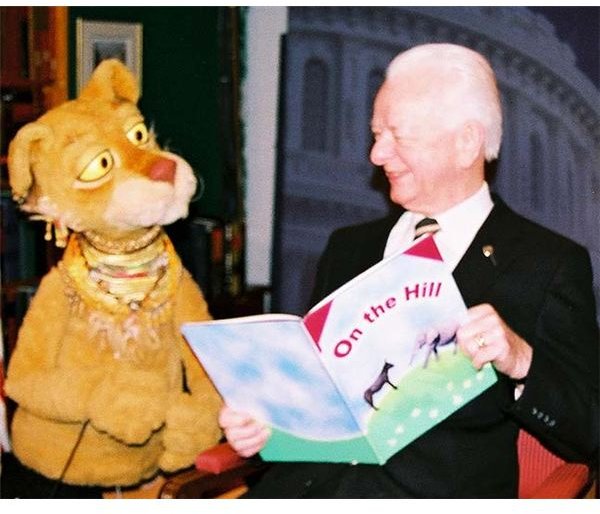What Do Children Learn From TV?
Children and Television
There has been a lot of research published about the influence of watching television on kids and adolescents. Parents who are aware will observe the effects of television shows and video games on their kids and perhaps see the activity can be habit forming. However, some may not be as mindful, and some parents may actually encourage TV watching as an easy way to entertain their children.
According to a compilation of research published by the University of Michigan Health System, young kids and adolescents spend around 28 to 32 hours per week in front of a TV, watching shows, DVDs, DVR and videos, and using a game console. While others spend some time using iPods, cell phones and the Internet to access television content, time spent viewing TV has actually increased. Parents and teachers who are concerned about children and TV exposure need to know the good and bad things they may be learning from a form of media that is more powerful than a school blackboard.
The Good Stuff
Are there any good things a child can learn from watching television? Yes, TV can be used quite effectively to teach and educate. Here are some benefits:
- Some television shows can be entertaining and educational, and can take kids to new worlds, giving them a chance to travel around the globe and learn about different cultures. They gain insights about things they may never encounter in their own community.
- Shows with a pro-social message such as friendliness, sharing, cooperation, sympathy and acceptance of others can have a positive effect on their behavior. Programs with positive role models in family and in school life can influence young viewers to make positive lifestyle changes.
- Some children’s shows on public TV are appropriate and can help meet the developmental needs of children. These kiddie shows may teach them how to read, spell and identify objects and colors.
- Many programs also teach about history, science, environmental protection and others about religious matters.
Popular age appropriate pro-social and educational programs include:
- For preschoolers - Sesame Street (PBS), Dora the Explorer (Nickelodeon) and Dragon Tales (PBS)
- For young elementary school children - Arthur (PBS) and The Wild Thornberrys (Nickelodeon)
- For older elementary school children - The Suite Life of Zack and Cody (Disney) and Drake and Josh (Nickelodeon)
Now the Bad Stuff
It is no secret to parents and guardians that there is a lot of bad influence on TV. According to the American Academy of Child and Adolescent Psychiatry, kids who watch a lot of television are apt to:
- Have lower grades in school
- Read fewer books
- Exercise less
- Be overweight
Many television programs demonstrate violence, sexuality, race and gender stereotypes, and drug and alcohol abuse.
Children also learn information that may be inappropriate or incorrect. They often cannot tell the difference between the fantasy versus reality presented in TV shows. They may also be influenced by the commercials about alcohol, junk food, fast foods and toys.
With these, young children who are often impressionable may assume that what they see is typical and acceptable. As a result, children may learn about behaviors and attitudes that may be overwhelming and difficult to understand.
How Children Can Learn from Watching Television
While some families eat dinner in front of the television, converse less and talk about fewer topics, other families engage in more physical contact like cuddling when they watch television together. Parents can use TV watching as a way to entertain, educate and bond with their children at the same time monitoring their viewing time and quality of shows.
Here are some points to help kids become less susceptible to the bad effects of watching TV:
- Watch programs with your kids, so if the show turns violent or inappropriate, you can explain what happened in a context you want your kids to learn.
- Know what your kids are watching. Have some rules on what programs are appropriate for their age and personality.
- Instead of letting children watch long blocks of TV, help them select individual programs. Set certain periods when the television should be turned off, such as meal times and study periods.
- Encourage discussions as you watch shows with the kids and point out positive behavior, such as cooperation, friendship and respect. Talk to them about relevant personal and family values.
- While watching, make references to history, books, places of interest and current lessons.
- Talk to kids about the realistic consequences of violence and bad behavior.
With proper guidance, children can learn to watch television in a healthy and positive way. Simply take the time as parents to set rules and boundaries, and guide your children to avoid television’s negative influence.
References
Med.umich.edu, https://www.med.umich.edu/yourchild/topics/tv.htm
Aacap.org, https://www.aacap.org/cs/root/facts_for_families/children_and_watching_tv
Princeton.edu, https://www.princeton.edu/futureofchildren/publications/journals/article/index.xml?journalid=32&articleid=58§ionid=271&submit
Photo from Commons Wikimedia.org
